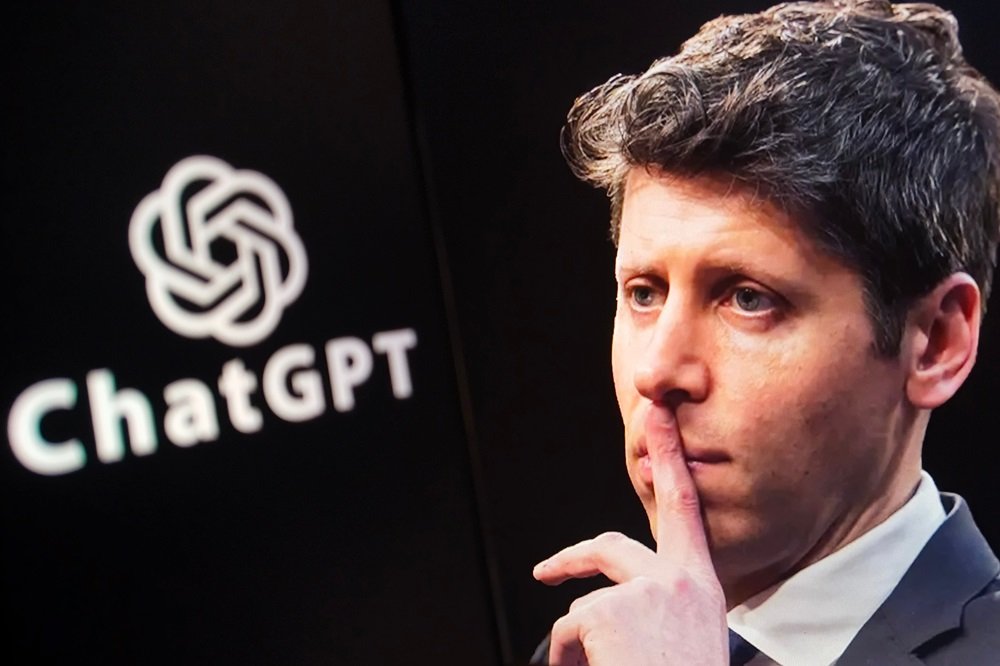Wall Street's biggest nightmare just came true:
Elon proved that 80% of corporate jobs are unnecessary.
Not because humans are lazy.
But because he discovered a dark truth about modern companies that no CEO wants to admit:
Elon proved that 80% of corporate jobs are unnecessary.
Not because humans are lazy.
But because he discovered a dark truth about modern companies that no CEO wants to admit:

When Elon bought Twitter for $44B in 2022, the world called him crazy.
The platform was bloated, inefficient, and bleeding money.
But Twitter would become more than a social network.
It would become the testing ground for the future of work.
The platform was bloated, inefficient, and bleeding money.
But Twitter would become more than a social network.
It would become the testing ground for the future of work.
His first move sent shockwaves through the industry:
He laid off 6,000 employees - 80% of Twitter's workforce.
The media called it reckless and Wall Street analysts predicted collapse.
A method lay behind what seemed like madness.
He laid off 6,000 employees - 80% of Twitter's workforce.
The media called it reckless and Wall Street analysts predicted collapse.
A method lay behind what seemed like madness.
He brought in his trusted lieutenants - Steve Davis from the Boring Company and his cousin James Musk.
Their mission was clear: identify the truly exceptional performers.
Every employee had to justify their role and recommend colleagues worth keeping.
Their mission was clear: identify the truly exceptional performers.
Every employee had to justify their role and recommend colleagues worth keeping.

The assessment was brutal but revealing:
Many teams were redundant. Processes were needlessly complex.
A skeleton crew could run the entire platform.
This exposed a fundamental truth about modern companies.
Many teams were redundant. Processes were needlessly complex.
A skeleton crew could run the entire platform.
This exposed a fundamental truth about modern companies.
Modern organizations are built for a pre-AI world.
They're weighed down by layers of management, redundant approvals, and manual tasks that could be automated.
Elon's strategy was to strip it all away and rebuild from scratch.
The execution was masterful:
They're weighed down by layers of management, redundant approvals, and manual tasks that could be automated.
Elon's strategy was to strip it all away and rebuild from scratch.
The execution was masterful:
It began with eliminating the "human middleware."
Instead of 20 people reviewing every decision, small elite teams were empowered to move fast.
Changes that once took months now happened in hours.
But the transformation was just beginning...
Instead of 20 people reviewing every decision, small elite teams were empowered to move fast.
Changes that once took months now happened in hours.
But the transformation was just beginning...
The automation revolution came next.
Content moderation, previously done by large teams, was rebuilt with AI at the core.
The new system could process content faster, reduce errors, and scale infinitely at minimal cost.
Content moderation, previously done by large teams, was rebuilt with AI at the core.
The new system could process content faster, reduce errors, and scale infinitely at minimal cost.
Elon pushed beyond basic automation.
He introduced "XAI" (Explainable AI) - making AI decisions transparent and understandable.
This transcended mere efficiency.
It was about building trust in automated systems.
He introduced "XAI" (Explainable AI) - making AI decisions transparent and understandable.
This transcended mere efficiency.
It was about building trust in automated systems.

The results were remarkable:
• Nuanced content detection
• Adaptive threat response
• Real-time user feedback integration
The system proved more consistent and fair than human moderators.
• Nuanced content detection
• Adaptive threat response
• Real-time user feedback integration
The system proved more consistent and fair than human moderators.
The most transformative phase followed:
The shift to AI-first workflows.
Every process was redesigned around AI capabilities, from content discovery to advertising.
Humans were elevated to strategic roles.
The shift to AI-first workflows.
Every process was redesigned around AI capabilities, from content discovery to advertising.
Humans were elevated to strategic roles.

The transformation reshaped everything about Twitter's operations.
The platform now runs leaner, faster, and more efficiently than ever.
Changes that once took months now happen in days.
The impact continues to compound.
The platform now runs leaner, faster, and more efficiently than ever.
Changes that once took months now happen in days.
The impact continues to compound.
Elon's strategy went far beyond cost-cutting.
He created a blueprint for the AI era, showing how small teams armed with powerful AI tools can outperform traditional corporate structures.
This represents the future of work.
He created a blueprint for the AI era, showing how small teams armed with powerful AI tools can outperform traditional corporate structures.
This represents the future of work.

Traditional CEOs maintain outdated organizational models.
They cling to bloated management structures, manual processes, and legacy workflows.
The same transformation awaits their organizations.
A clear path forward exists:
They cling to bloated management structures, manual processes, and legacy workflows.
The same transformation awaits their organizations.
A clear path forward exists:
The blueprint for success in the AI era is clear:
• Elevate humans to strategic roles
• Make AI decisions transparent
• Build small, elite teams
• Automate aggressively
Companies that adapt will thrive and those that don't will die.
• Elevate humans to strategic roles
• Make AI decisions transparent
• Build small, elite teams
• Automate aggressively
Companies that adapt will thrive and those that don't will die.
A bit about me:
I built tech powered by voice before Alexa existed.
Now I help founders spot AI opportunities others miss.
Follow me, @heathahrens frameworks & future tech predictions to stay 5 steps ahead.
I built tech powered by voice before Alexa existed.
Now I help founders spot AI opportunities others miss.
Follow me, @heathahrens frameworks & future tech predictions to stay 5 steps ahead.
Video credits:
• YT link youtube.com/watch?v=HY_CIf…
• YT link youtube.com/watch?v=04AEWB…
• YT link youtube.com/watch?v=hQX_wI…
• YT link youtube.com/watch?v=HY_CIf…
• YT link youtube.com/watch?v=04AEWB…
• YT link youtube.com/watch?v=hQX_wI…
• • •
Missing some Tweet in this thread? You can try to
force a refresh












